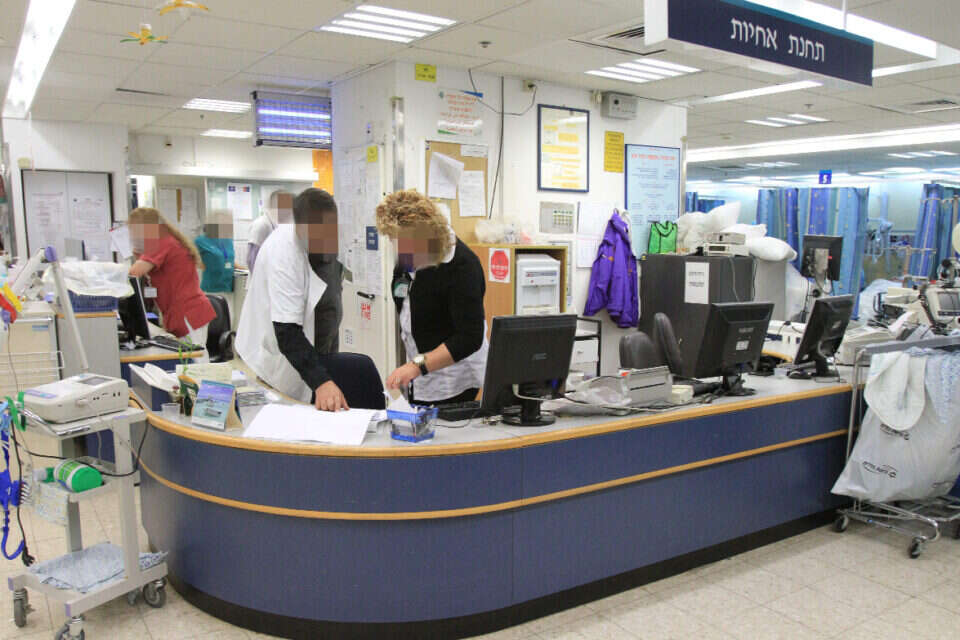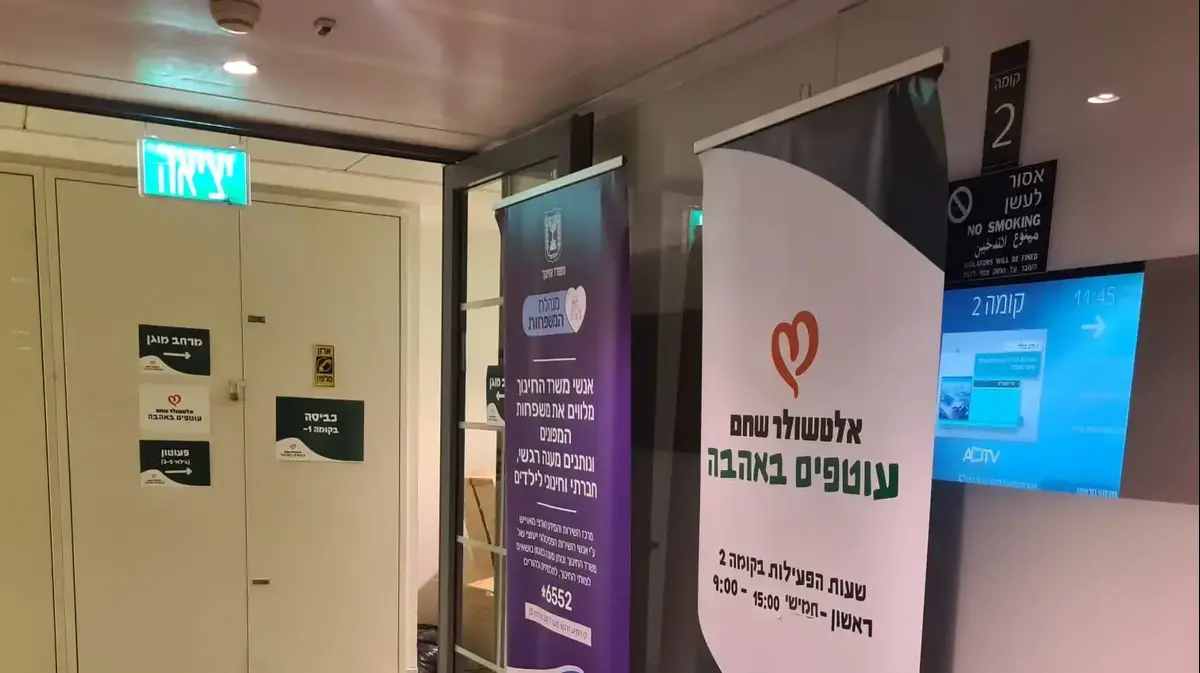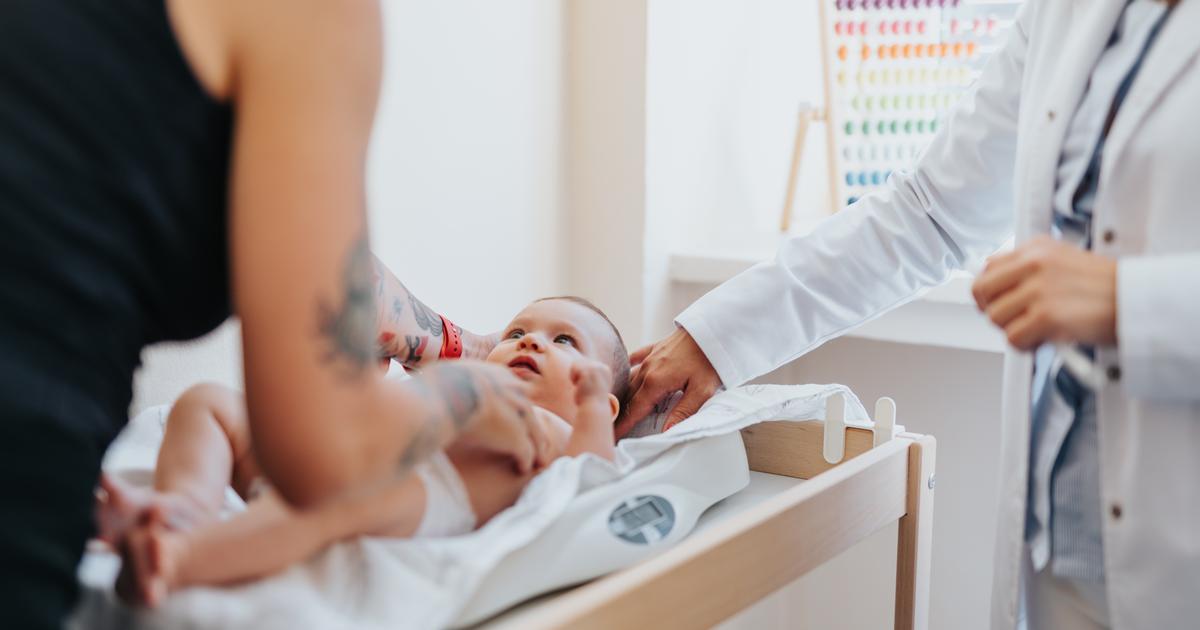The associations of patients with serious and rare diseases claim double discrimination:
not only are the diseases in which they are patients unrecognized and the treatments, if any, expensive, but they also claim to be discriminated against in receiving assistance and support from the Ministry of Health.
Patients with muscular dystrophy (ALS), cystic fibrosis, Rett syndrome, Gaucher disease and dozens of other diseases are embarking on a struggle to increase the support and assistance that the Ministry of Health provides to the associations that unite them.
"We ask for your intervention", Prof. Nachman Ash, Photo: Yossi Zeliger
According to support tests (principled instructions that establish criteria for providing support) of the Ministry of Health, patient associations are eligible for assistance from the Ministry of Health for activities such as holding conferences for patients, translating documents, funding a social worker, support groups, transporting patients and more.
However,
associations of patients with rare diseases who have sought help claim that due to the fact that these are diseases in which a minority of patients have difficulty receiving their help, they are discriminated against compared to associations that treat a large number of patients such as cancer, diabetes, stroke and other common diseases.
Require funding and assistance as for patients with more familiar diseases, Photo: GettyImages
It is estimated that there are 8,000 to 10,000 rare diseases, the prevalence of which is low in the population.
According to a conservative estimate, there are about 500,000 people in Israel who are ill, about 5% of the residents of the State of Israel.
"We are in an immediate inferior position. This is a built-in discrimination of rare diseases, not a bad intention but a lack of awareness of the issue of size," says Efrat Carmi, CEO of Israelis for Muscular Dystrophy. "This important funding will go to large organizations The little ones who so need it.
Translating documents for my patients will cost me as much as cancer patients but they will get more assistance because they are treating most patients.
"Bringing an expert from abroad to the lecture will also cost me more."
"My association represents 600 patients but there are even smaller associations with 15 patients. And each association has a social worker who gives an answer. Once the funding key is by number of patients it turns out we get nothing even though we give our patients 360 degree service. It's a basic distortion. "Because the system does not recognize rare diseases," Carmi concluded.
Orly Dror Azuriel, Director General of the Coalition for Rare Diseases, addressed the issue to Prof. Nachman Ash, Director General of the Ministry of Health, and suggested a solution: It is to allocate a percentage that will be determined in advance from the budget for serious diseases, to associations in the field of rare diseases. "
This week, the Knesset marked "Rare Diseases Day" and a lobby was established on the subject, headed by MK Sami Abu Shehadeh. Meanwhile, MK Tatiana Mazarski (Yesh Atid) spoke on the issue of support in the Knesset plenum: "They get the support money. It's a kind of discrimination in the distribution of the Ministry of Health's resources regarding serious illnesses."
The Ministry of Transportation stated in response that the issue will be considered: "The Ministry of Health supports non-profit organizations that treat serious diseases to the tune of NIS 2.765 million per year.
"The distribution of funds in the test today does not rely mainly on the number of participants but on additional distribution parameters that relate to additional aspects such as:
In support groups - the distribution parameter refers to the number of hours of treatment.
Information activity - 50 percent of the weight refers to the total expenses of the supported body for information.
Even in complementary medicine 50 of the weight refers to the expenses of the supported body for the treatments.
All associations that meet the test conditions and the conditions of the support procedure may access, and be supported, including associations that help patients with rare diseases.
The ministry will examine the application as part of the preparations for the support of 2023, "the Ministry of Health concluded.
Were we wrong?
Fixed!
If you found an error in the article, we'll be happy for you to share it with us









